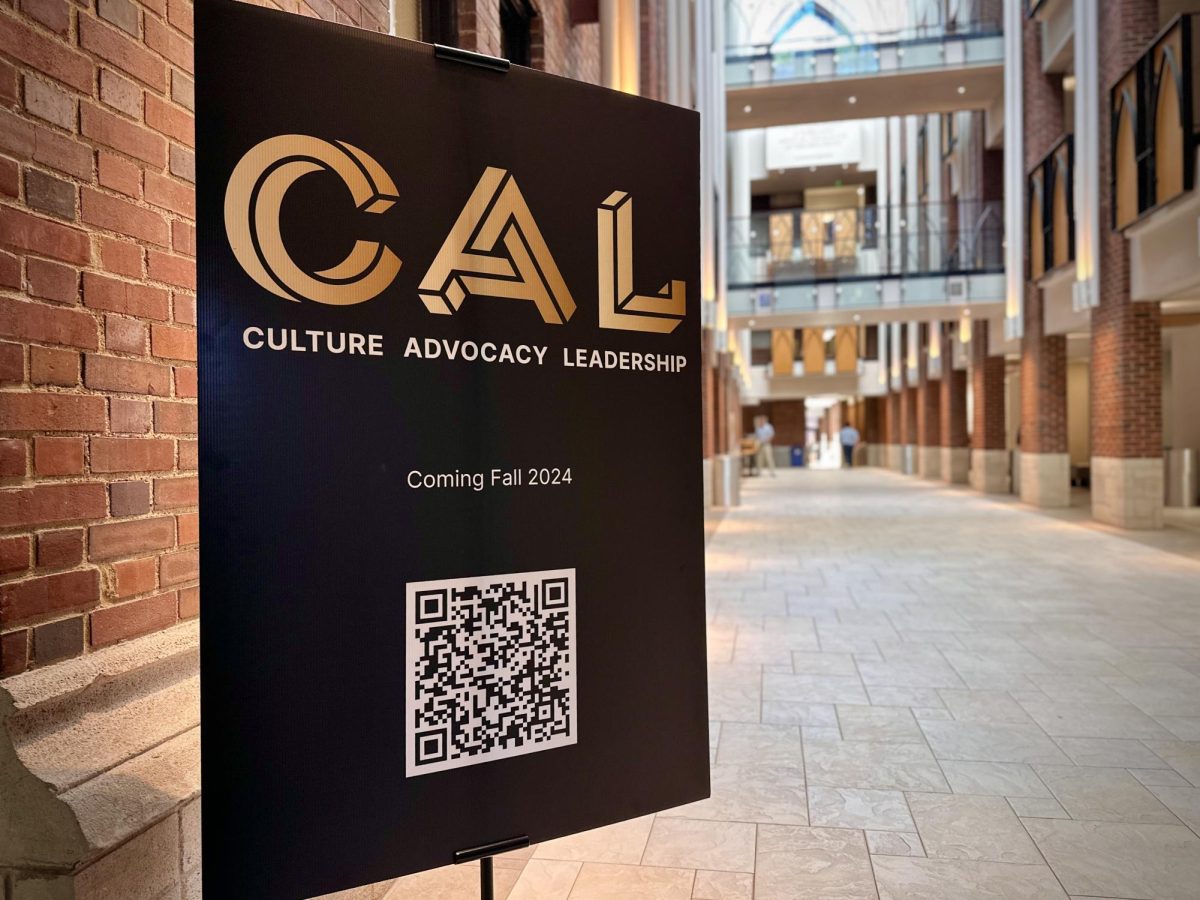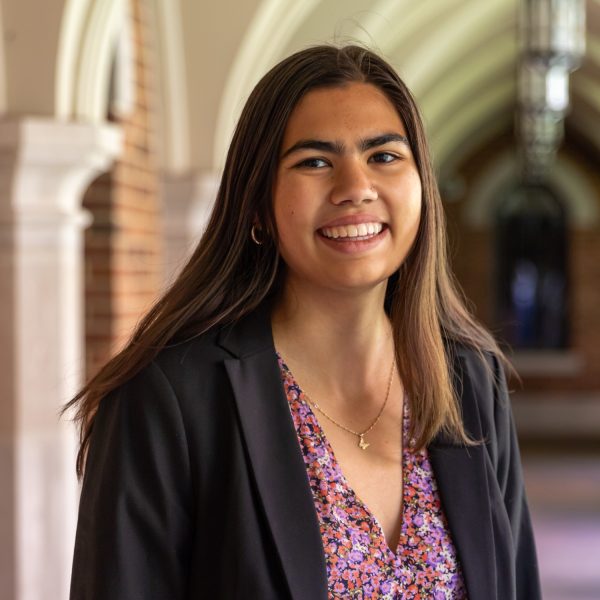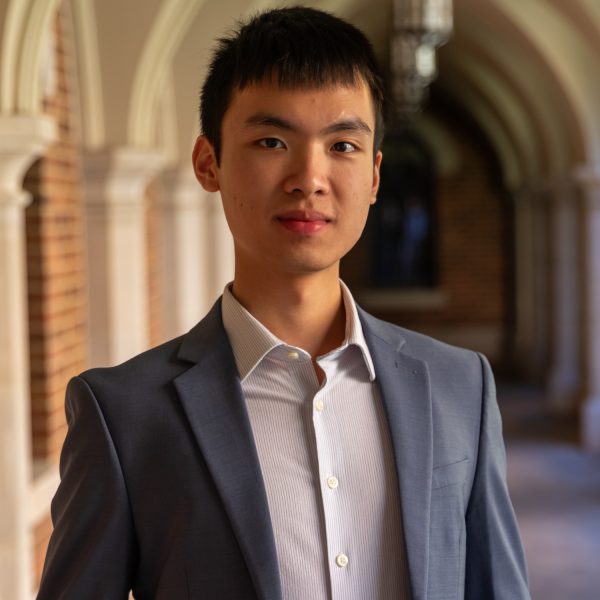Next fall, the university will relaunch the American studies major as a new major titled culture, advocacy and leadership. At the start of this school year, a political economy minor was added, as well as a Korean concentration in the Asian studies major and a research methods subfield to the political science major.
The political science and communication of science and technology major requirements were also changed to be less restrictive to students.
Culture, advocacy and leadership major
Paul Stob, current director of the Department of American Studies, emphasized that many of the values and core tenets of the American studies major will remain the same with the new CAL major. He said the name change is meant to reflect the interdisciplinary nature of the major.
“We love the public-facing work that we do with interdisciplinary conversations, but for some reason, the name American studies wasn’t connecting as well as we thought it should,” Stob said. “‘American studies’ didn’t necessarily capture the kind of forward-looking, action-based work that we often have our students do.”
Changes to the program curriculum include a larger emphasis on civics, applied learning and public speaking, as well as several more “core” courses. Students will also be required to complete an internship experience to apply their learnings in partnership with a community organization
Madeleine Amberg (B.A. ‘22), who double majored in American studies and political science, was one of four students of the American studies advisory board, all nominated by department staff members for their passion for the program.
“Similar to the HOD capstone project, they wanted to give students in the major an opportunity to apply what they had been learning for the past three years and gain real-world work experience that could help them in the post-grad job search,” Amberg said.
Stob said the practicum and other elements of the new program allow the major to reflect the interdisciplinary nature emphasized in the human and organizational development and medicine, health and society programs.
“We want CAL to be the civic [interdisciplinary major], the community one,” Stob said. “We want those whose desire is to change the world to come work with us.”Amberg mentioned that another goal of the change was to increase post-grad possibilities.
“Historically, American Studies majors have gone almost exclusively into Ph.D. programs or law school, and they’re trying to change the requirements so students will build skills that can be applied to a variety of different career paths, not just graduate school or law school,” Amberg said.
Junior Grayson Pitt, a current American studies major planning to redeclare as a CAL major next year, said she is excited about how the rebrand will affect future career opportunities and outlooks.
“The primary disadvantage with American studies is that nobody knows what it is. It’s more than just American history. It’s anthropology, political science and sociology wrapped into one,” Pitt said. “Even though it’s still a weird title for a major, [it]is more self-explanatory than American Studies.”
Junior Hayden Davis also expressed excitement about the change.
“I think the name change takes away those precognitions students and even future employers have surrounding the title of American studies and better represents what it is we as scholars do — find ways to become leaders in the important niches of our lives,” Davis said.
Political economy minor
The Departments of Political Science and Economics are implementing an interdisciplinary Political Economy minor this fall. According to the College of Arts and Science website, the minor will allow students to explore the intersection of political science, economics and public policy, while specifically learning how microeconomic theory and game theory can be used to analyze political institutions.
Before declaring the minor, undergraduates must take PSCI 2259: Political Strategy and Game Theory or ECON 3012: Microeconomics as a prerequisite. To fulfill the minor requirements, students must take PSCI 3401/ECON 4230: Political Economy of Institutions and Development, in addition to four electives.
Professor Alan Wiseman, chair of the Department of Political Science, mentioned the vast investment in new faculty across both departments, many of whom have political economic analysis expertise.
“I really think it’s fair to say we have the strongest group of political economy scholars in the country now,” Wiseman said. “A lot of the undergrads are coming in with some pretty strong technical skills or at least interest in learning about data science, quantitative analysis and the like.”
Wiseman said this minor was created to use a structured curriculum to combine the strengths of the faculty with the interests and needs of students.
Asian studies changes
The Asian studies major is implementing a new Korean concentration this fall. This addition comes following the creation of another major — Asian American and Diaspora Studies — within the Department of Asian Studies earlier this year.
In his proposal, Professor Gerald Figal, the chair of the Department of Asian Studies, cited the growing popularity of Korean courses as the reason for the new concentration. Like other concentrations in Asian studies, the Korean concentration will require 36 credit hours from the Asian Studies course list, at least 3 credit hours in Korean at the advanced level or above and a minimum of 9 non-language credit hours for students.
“The desire for a Korean studies major has been voiced by many students ever since the department began offering Korean language and Korean literature, history and film courses in Fall 2018,” the proposal read.
Professor We Jung Yi, the first and only Korean studies specialist at Vanderbilt, has taught most of these courses and has seen an increase in student interest, aligning with the “Korean Wave” of language and culture in popular media.
Yi said she is excited about the future of the program and hopes it will continue to expand.
“I am confident that the introduction of the Korean concentration will mark another step forward in the development of Vanderbilt’s own innovative, critical Korean program,” Yi said. “I eagerly anticipate welcoming numerous prospective students and another Koreanist to join us on this exciting journey.”
Political science changes
Starting this fall, the Department of Political Science changed its major, increasing flexibility for undergraduates. An Aug. 25 email sent to declared political science majors stated that there will no longer be a “special emphasis” requirement, removing the need for six elective credits in a specific area of concentration. Jonathan Hiskey, new director of undergraduate studies in political science, said this requirement proved too inflexible for many students.
“There were just practical problems to the idea of having an area of concentration that were just causing more problems than the requirements were worth,” Hiskey said.
The department is also adding another subfield to the major, research methods. According to the email, students will have a breadth requirement of taking one course from four of these five subfields. Sophomores, juniors and seniors can choose whether to declare the major with the new requirements or stay with the old ones.
“I have a running list of people who have already declared [with the new requirements], and right now, it’s up to about 20 students,” Hiskey said. “My sense is that most of the majors we have are far enough along with fulfilling the [old] requirements that it wasn’t worth re-declaring.”
Communication of Science and Technology changes
Changes to the CSET major include the implementation of a core curriculum, including the classes Science for Everyone, Communicating Science and Scientific Tools and Techniques. There are also fewer requirements for higher-level courses.
“[The new requirements] give a breadth of science without losing the interdisciplinary concept [of CSET] which attracts so many students,” Professor Shellie Richards, director of undergraduate studies for CSET said.
Additionally, Richards said CSET courses will be centering more on scientific narratives, ethical discussions and experiential practices.
Richards stated that these changes are the result of a dramatic growth in the program to date. According to Richards, nine students declared CSET as their major in 2019, and today there are more than 90 undergraduates pursuing the major. In 2019, the CSET received a grant from the National Endowment for the Humanities, allowing the program to increase emphasis on narrative and accessibility to all majors.
“I love that the new track options for double majors are inclusive of a broad range of disciplines in both the sciences and humanities, which just goes to show how valuable CSET is as an interdisciplinary nexus,” junior Kyle Vallone said.














